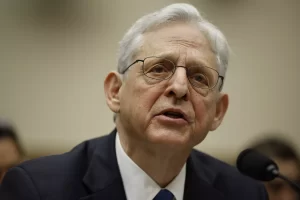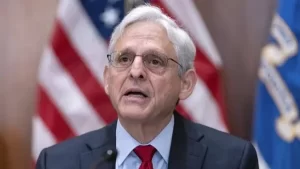On Friday, the Justice Department informed House Speaker Mike Johnson that it would not prosecute Attorney General Merrick Garland for contempt of Congress, despite this week’s House vote. The department argued that Garland’s refusal to comply with a subpoena “did not constitute a crime.”
The conflict revolves around a subpoena for the recording of President Joe Biden’s interview with special counsel Robert Hur regarding classified documents found in Biden’s home. Hur decided not to charge Biden with any federal crimes, and the president asserted executive privilege to keep the recording confidential.
The DOJ provided the House with a transcript of Biden’s interview, and Hur testified about his decision. However, Republican lawmakers insisted on hearing the president’s responses as part of their inquiry into his fitness for office.
Johnson announced on Friday that the House disagrees with the Justice Department’s decision and will send its contempt report to the U.S. Attorney for the District of Columbia to consider charges against Garland. Johnson also stated that the House would request federal courts to enforce the subpoena.
“This is yet another example of the two-tier system of justice brought to us by the Biden Administration,” Johnson said.
On Wednesday, the House voted 216-207 to hold Garland in contempt and recommended the department charge him.
Assistant Attorney General Carlos Felipe Uriarte explained the department’s longstanding policy that it isn’t considered a crime when agencies refuse to comply with congressional subpoenas after a president asserts executive privilege. He cited several instances of administration officials defying subpoenas without prosecution:
- White House Chief of Staff Joshua Bolten and White House counsel Harriett Miers during President George W. Bush’s administration, regarding the dismissal of U.S. attorneys.
- Attorney General Eric Holder during President Barack Obama’s administration, concerning a gun trafficking investigation called Fast and Furious.
- Attorney General Bill Barr during President Donald Trump’s administration, about a citizenship question added to the 2020 Census.
None of these officials were prosecuted by the department.
“In line with this longstanding position and consistent practice, the Department has concluded that Attorney General Garland’s responses to the subpoenas issued by the Committees do not constitute a crime, and accordingly, the Department will not bring the congressional contempt citation before a grand jury or take any other action to prosecute the Attorney General,” Uriarte wrote.






